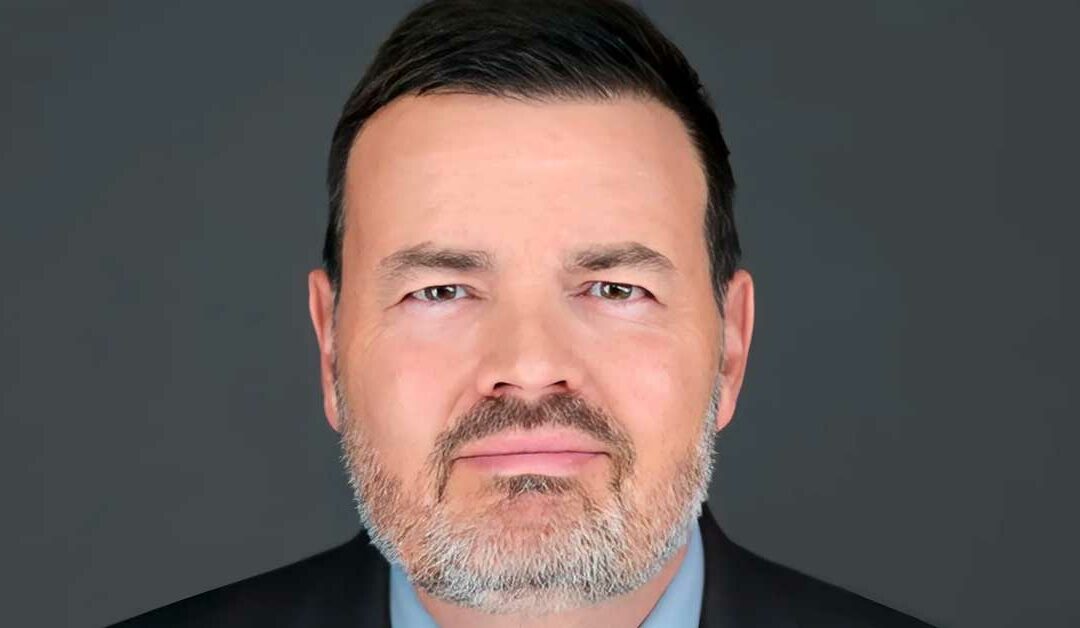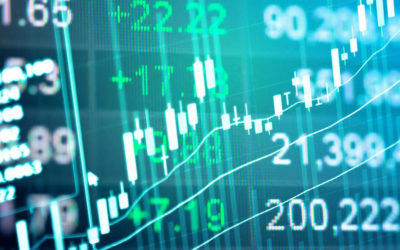This interview was conducted by Savio P. Clemente at Medium. Full article is available here
I was born in London and was sent to boarding schools starting at age seven. The first was one of the last holdouts using Victorian education principles where sports included boxing, and discipline involved caning.
I attended Manchester University and earned a B.A. in Management and Technology. My first job out of school was at a world-famous insurer, where my job was to make sure that an underwriter signed policies. The pay was terrible and there was an old boys’ network that taught me that if you want to succeed in the U.K., it’s all about whom you know and the school tie you wear.
I packed it in after about 10 months and headed to Australia with no plans at all. After arriving at Sydney airport, I found myself sleeping on an acquaintance’s sofa and before long, I got a job in a factory manufacturing women’s clothing.
Being fresh off the boat and an outsider with a peculiar accent was an unusual and humbling experience. I realized that if you put in the longest hours and show everyone, you’ll do anything and that nothing is beneath you, you earn respect. This was the first valuable work lesson I stumbled on at age 24.
Eventually, an old school chum called from Thailand and asked me to help him out with a small mine turning out some gray metal that he had won in a card game. That was my introduction to tungsten but is perhaps a story for another time.
Can you share with us the most interesting story from your career? Can you tell us what lessons or ‘takeaways’ you learned from that?
When we first bought the Portuguese mine in 2005 the entire underground operation was antiquated. It was still stuck in the early 1970s with no underground lighting and very little attention paid to safety. It was really stuck in a time warp.
When I arrived, I was of course seen as an outsider. The crew there were a grizzled bunch of hard drinking, chain smoking fourth or fifth generation miners and I was this soft-handed person with an English accent.
On my first visit to the mine, after we bought it, I went underground with the mine manager. This was a guy who started there as an apprentice at age 14 and worked his way up. He and the rest of the crew wanted to see what I was made of.
So, we’re walking through these underground galleries held up by pillars that are maybe 3 meters thick and holes in the ground that are 70, 80, or 90 meters deep. We came to one of these holes and he just leaped across. Other than the light from our headlamps, it was completely dark. I knew that this bloody big hole was really a test. And, even though I was very uncomfortable with it, I really had no choice. If I was going to manage and rebuild this place, I had to pass the test because if I didn’t, their first impression of me would not command respect. So I jumped.
What do you think makes your company stand out? Can you share a story?
I think one of the things that makes our company stand out is the knowledge that we embody. Our Panasquiera mine in Portugal has been in operation for 126 years. The majority of the team are fifth generation. There are not many companies in any discipline that can say they have had five generations of the same family working in the same company for that long. And all that knowledge has been preserved, which is very important.
None of us are able to achieve success without some help along the way. Is there a particular person who you are grateful towards who helped get you to where you are? Can you share a story?
My dad was one of the most important influences in my life. Like others who had been through the Second World War, he was a relatively unemotional person. But he was also the most moral person I have ever known. He had a strong sense of right and wrong and believed you must live by a moral code. I respected him tremendously.
Ok, thank you for all that. Now let’s shift to the main focus of this interview. We would like to explore and flesh out the trait of resilience. How would you define resilience? What do you believe are the characteristics or traits of resilient people?
I think a resilient person is somebody who doesn’t see failing as a weakness but rather as a learning experience. You experience it, learn your lesson and you continue forward. And secondly, you must always be receptive to change and new ideas. You have to constantly evolve and always look at ways of improving what you do.
There are lots of examples of what happens when you fail to evolve. Look at Blackberry. They were the king, but never really moved the innovation forward and now who remembers that?
It’s no different in what we do. Our competitors in China and Russia have enormous advantages over us. They have much less regulation, much cheaper wages, and an almost endless supply of state capital. So, we have to innovate through the use of technology. We are constantly searching for better technology or designing the technology ourselves to be able to maintain competition.
You know, they always say an old dog can’t learn new tricks, but you have to because otherwise you just die an old dog.
Courage is often likened to resilience. In your opinion how is courage both similar and different from resilience?
I think there’s the traditional concept of courage, what we tend to call heroism. You know, when a guy is in the service of his country and he’s fighting a battle somewhere, that’s one kind of courage.
I think courage is also being unafraid to admit you’re wrong, and being a strong enough person to be able to correct your mistake if you make one. Courage is when you do not let the fear of making a mistake keep you from acting. A lot of people are very reluctant to try for fear of making a mistake.
But I think it’s not the case. You have to take those risks because you can’t always be right. Being afraid to make a mistake is a mistake. If you are wrong, you have to be brave enough and honest enough to acknowledge you were wrong and then correct that mistake. That’s kind of how I understand courage.
When you think of resilience, which person comes to mind? Can you explain why you chose that person?
That question makes me think of the operators we work with at our mines in Spain and Portugal. To them it’s not just a job, it’s not something they say they’re doing so they can pay the mortgage.
They do it because they’re able to do it and because they know a lot of people can’t. They want to do it because it’s a source of pride. There’s a camaraderie of being in that community. I think that their reason for getting out of bed every day is because they know how many people depend on them, not just to do a good job, but also for their own safety.
It’s quite a different dynamic when you know that if you don’t do your job well and correctly, it can endanger people that you know very well. The operators, the guys who are driving the equipment underground working on the faces. that that’s the kind of person I consider to be very resilient.
Has there ever been a time that someone told you something was impossible, but you did it anyway? Can you share the story with us?
That happens all the time. Regardless of the field you are in you will often find people will level criticism and say whatever it is you want to do is impossible. They think you can’t do it because they don’t accept the fact that if you really think outside the box, short of defying the laws of physics, nothing is impossible. Yes, the solution may not be cost-effective, the solution may be impractical but ultimately nothing is impossible. It’s just a question of finding the route to the solution and that route has to be cost-effective and viable but there’s no such thing as impossible.
Did you have a time in your life when you had one of your greatest setbacks, but you bounced back from it stronger than ever? Can you share that story with us?
There have been a lot of setbacks. I can’t pinpoint one, but I think your strength comes from the fact that you learn from your mistakes. The goal is to have more wins, than losses at the end of the journey.
But you have got to have losses because ultimately, you’ve got to take risks, and with risk comes the chance of winning or losing. You should never rest on your laurels. You should never just say, oh, I do this one thing really well so I’m never going to do anything else. In order to grow, you have to take risks and sometimes it works and sometimes it doesn’t.
But if it doesn’t, you don’t look at it as a failure. You look at it as part of your education and you dust yourself off and then you look for the next risk you will take and you very much hope with the work you’ve done and the preparation that it will be successful.
How have you cultivated resilience throughout your life? Did you have any experiences growing up that have contributed to building your resiliency? Can you share a story?
I think the idea of a work ethic was installed in me very young by my dad. I always worked during the holidays, and I used to love getting a paycheck because it was my money and I could do whatever I wanted with it.
I was always brought up with the idea if you’re going to do a job, do it well, otherwise don’t do it at all. But if you are going to work, you have to do it to the best of your ability. It shouldn’t be just a sort of mundane grind.
I think the single most important thing is that you have to take upon yourself a level of self-discipline that gets easier with time. It may be a little boring quitting the party early because you have to work the next day but, that discipline you install upon yourself will serve you very well as you get older.
Resilience is like a muscle that can be strengthened. In your opinion, what are 5 steps that someone can take to become more resilient?
Resilience comes from self-discipline, from the desire to really push yourself to do the best possible job, even surpassing what you think you’re capable of.
Always trying to see if you can be better. Striving to do it better but making sure that you give yourself equal praise and criticism because you’re never going to reach a level of perfection. That’s something that is impossible.
But at the same time, you have to acknowledge your failings or your weaknesses. You have to be completely honest with yourself.
I think what gives you greater resilience is being able to withstand criticism. So, even though you should always listen to criticism it should only be up to a point. You also should bear in mind that in most cases what other people think of you is irrelevant.
The most important thing is to be true to your own moral compass. Let that be your guide, not the people around you. It’s quite a lonely business and it requires really being incredibly honest with yourself.
it’s understanding that external criticism as well as external compliments really should not interfere with or affect the way that you do things.
You are a person of great influence. If you could inspire a movement that would bring the most amount of good to the most amount of people, what would that be? You never know what your idea can trigger. 🙂
I think people have to understand the journey we are all on and the number of people that are involved in everything that goes on in our lives. I would like people to really appreciate and understand that it wasn’t just Steve Jobs who created your iPhone. There was someone who mined the materials, someone who worked in the factory and so on through each stage involved until it got to the end user.
I think when people start respecting everyone’s input into their lives, rather than just focusing on the ones that are front and center on Twitter, it would have a great positive impact. There are a vast number of people out there who essentially never get noticed, but in fact, without their contribution, you wouldn’t have the life that you have.
Is there a person in the world, or in the US with whom you would love to have a private breakfast or lunch with, and why? He or she might just see this, especially if we tag them 🙂
That’s an interesting question because I think ultimately, you have to be careful that it’s not an ego-driven decision. And then at the same time, you don’t want to choose a person that you just want to have a rant at like, ‘How could you be such a poor politician or how could you, you know, say such absurd things.’
I suppose if there was one person who’s still alive, I’d very much like to meet Henry Kissinger. And the reason is because when he was operating as Secretary of State and was the kind of the world’s diplomat, the world seemed a far simpler place in many regards. There was a Cold War going on and there was a clear distinction about who was on whose side.
I would like to hear whether that simplicity is just in my mind or if it really did exist. Was it a simpler planet in terms of understanding where everybody stood? Or was it just as complex as now?
I can’t think of another character before or after that was so pivotal globally, in terms of diplomacy.
Thank you, Savio P. Clemente, for empowering us to present this captivating narrative to our readers.
Latest News
Almonty Closes Additional Tranches of Private Placement
Almonty is pleased to announce it has closed three tranches of its non-brokered private placement through the sale of 4,263,263 units (“CDN Units”) at a price of CDN$0.55 per CDN Unit, raising gross proceeds of CDN$2,344,795, and 1,525,000 Chess Depository Interests units (“CDI Units”) at a price of A$0.62 per CDI Unit, raising gross proceeds of A$945,000.
Almonty Announces the Filing of its Audited Annual Consolidated Financial Statements, MD&A & AIF for the Year Ended December 31, 2023 and $2.2M in Positive EBITDA from Mining Operations
Almonty Announces the Filing of its Audited Annual Consolidated Financial Statements, MD&A & AIF for the Year Ended December 31, 2023 and $2.2M in Positive EBITDA from Mining Operations.
Placement of Common Share Units and CDI’s raises C$1.47M with Further Commitments of C$1.178 million for acceleration of Tungsten downstream planning and Molybdenum reserves conversion.
Almonty Industries Inc. is pleased to announce that it has closed on a non-brokered private placement through the sale of 2,668,000 units (“CDN Units”) at a price of $0.55 per unit raising gross proceeds of $1,467,400.
About Almonty
The principal business of Toronto, Canada-based Almonty Industries Inc. is the mining, processing and shipping of tungsten concentrate from its Los Santos Mine in western Spain and its Panasqueira mine in Portugal as well as the development of its Sangdong tungsten mine in Gangwon Province, South Korea and the development of the Valtreixal tin/tungsten project in north western Spain.
The Los Santos Mine was acquired by Almonty in September 2011 and is located approximately 50 kilometres from Salamanca in western Spain and produces tungsten concentrate. The Panasqueira mine, which has been in production since 1896, is located approximately 260 kilometres northeast of Lisbon, Portugal, was acquired in January 2016 and produces tungsten concentrate.
The Sangdong mine, which was historically one of the largest tungsten mines in the world and one of the few long-life, high-grade tungsten deposits outside of China, was acquired in September 2015 through the acquisition of a 100% interest in Woulfe Mining Corp.
Almonty owns 100% of the Valtreixal tin-tungsten project in north-western Spain.
Further information about Almonty’s activities may be found at www.almonty.com and under Almonty’s profile at www.sedar.com.
Legal Notice
The release, publication or distribution of this announcement in certain jurisdictions may be restricted by law and therefore persons in such jurisdictions into which this announcement is released, published or distributed should inform themselves about and observe such restrictions.
Disclaimer for Forward-Looking Statements
When used in this press release, the words “estimate”, “project”, “belief”, “anticipate”, “intend”, “expect”, “plan”, “predict”, “may” or “should” and the negative of these words or such variations thereon or comparable terminology are intended to identify forward-looking statements and information. These statements and information are based on management’s beliefs, estimates and opinions on the date that statements are made and reflect Almonty’s current expectations.
Forward-looking statements in this press release include, but are not limited to, statements regarding the expected use of proceeds of the Debenture Offering. The forward-looking statements and information in this press release include information relating to the intentions of management. Such statements and information reflect the current view of Almonty with respect to risks and uncertainties that may cause actual results to vary. Forward-looking statements are subject to known and unknown risks, uncertainties and other factors that may cause the actual results, level of activity, performance or achievements of Almonty to be materially different from those expressed or implied by such forward-looking statements, including but not limited to: the receipt of all required approvals, unanticipated costs and expenses, general market and industry conditions and perational
risks, including large project risk and contractual factors, any specific risks relating to fluctuations in the price of ammonium para tungstate (“APT”) from which the sale price of Almonty’s tungsten concentrate is derived, actual results of mining and exploration activities, environmental, economic and political risks of the jurisdictions in which Almonty’s operations are located and changes in project parameters as plans continue to be refined, forecasts and assessments relating to Almonty’s business, credit and liquidity risks, hedging risk, competition in the mining industry, risks related to the market price of Almonty’s shares, the ability of Almonty to retain key management employees or procure the services of skilled and experienced personnel, risks related to claims and legal proceedings against Almonty and any of its operating mines, risks relating to unknown defects and impairments, risks related to the adequacy of internal control over financial reporting, risks related to governmental regulations, including environmental regulations, risks related to international operations of Almonty, risks relating to exploration, development and operations at Almonty’s tungsten mines, the ability of Almonty to obtain and maintain necessary permits, the ability of Almonty to comply with applicable laws, regulations and permitting requirements, lack of suitable infrastructure and employees to support Almonty’s mining operations, uncertainty in the accuracy of mineral reserves and mineral resources estimates, production estimates from Almonty’s mining operations, inability to replace and expand mineral reserves, uncertainties related to title and indigenous rights with respect to mineral properties owned directly or indirectly by Almonty, challenges related to global financial conditions, risks related to future sales or issuance of equity securities, differences in the interpretation or application of tax laws and regulations or accounting policies and rules of the TSX.
Forward-looking statements are based on assumptions management believes to be reasonable, including but not limited to, the receipt of all required final approvals, no unanticipated delays in the project financing, no material unanticipated costs and expenses, no material adverse change in general market and industry conditions and no unanticipated material operational risks, including large project risk and contractual factors, no material adverse change in the market price of APT, the continuing ability to fund or obtain funding for outstanding commitments, expectations regarding the resolution of legal and tax matters, no negative change to applicable laws, the ability to secure local contractors, employees and assistance as and when required and on reasonable terms, and such other assumptions and factors as are set out herein. Although Almonty has attempted to identify important factors that could cause actual results, level of activity, performance or achievements to differ materially from those contained in forward-looking statements, there may be other factors that cause results, level of activity, performance or achievements not to be as anticipated, estimated or intended. There can be no assurance that forward-looking statements will prove to be accurate and even if events or results described in the forward-looking statements are realized or substantially realized, there can be no assurance that they will have the expected consequences to, or effects on, Almonty. Accordingly, readers should not place undue reliance on forward-looking statements and are cautioned that actual outcomes may vary.
Investors are cautioned against attributing undue certainty to forward-looking statements. Almonty cautions that the foregoing list of material factors is not exhaustive. When relying on Almonty’s forward-looking statements and information to make decisions, investors and others should carefully consider the foregoing factors and other uncertainties and potential events.
Almonty has also assumed that material factors will not cause any forward-looking statements and information to differ materially from actual results or events. However, the list of these factors is not exhaustive and is subject to change and there can be no assurance that such assumptions will reflect the actual outcome of such items or factors.
THE FORWARD-LOOKING INFORMATION CONTAINED IN THIS PRESS RELEASE REPRESENTS THE EXPECTATIONS OF ALMONTY AS OF THE DATE OF THIS PRESS RELEASE AND, ACCORDINGLY, IS SUBJECT TO CHANGE AFTER SUCH DATE. READERS SHOULD NOT PLACE UNDUE IMPORTANCE ON FORWARD-LOOKING INFORMATION AND SHOULD NOT RELY UPON THIS INFORMATION AS OF ANY OTHER DATE. WHILE ALMONTY MAY ELECT TO DO SO, IT DOES NOT UNDERTAKE TO UPDATE THIS INFORMATION AT ANY PARTICULAR TIME EXCEPT AS REQUIRED IN ACCORDANCE WITH APPLICABLE LAWS.
For further information, please contact:
Lewis Black
Chairman, President and CEO
Telephone: +1 647-438-9766
E-mail: info@almonty.com
The head office of Almonty is:
100 King Street West
Suite 5700
Toronto, Ontario
M5X 1C7




